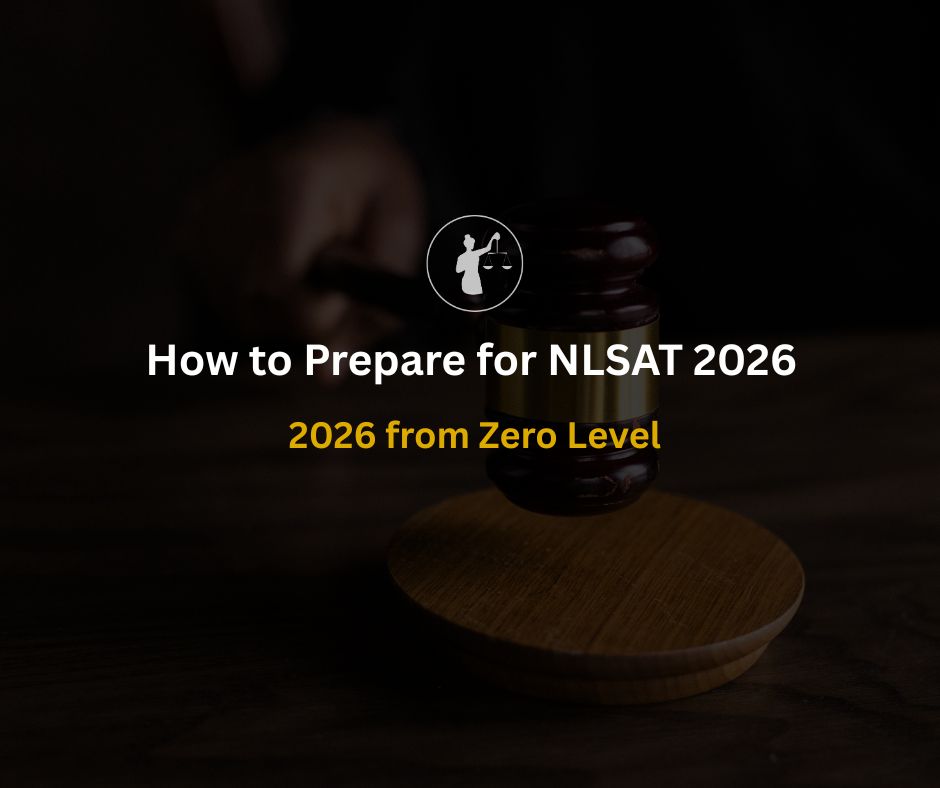
AILET 2026 Official Notification Out: Dates, Syllabus, Fees, and How to Balance It with CLAT
Summary: The All India Law Entrance Test (AILET) 2026 will be conducted by NLU Delhi on December 7, 2025 (Sunday), from 2:00 PM to 4:00 PM for admissions to B.A. LL.B. (Hons.), LL.M., and Ph.D. programs. The application portal opens on August 1, 2025, at nludelhi.ac.in. This blog covers everything, syllabus, pattern, registration fees, and how to manage AILET prep alongside CLAT.
Exam Date
Sunday, December 7, 2025
Time
2:00 PM to 4:00 PM
Mode
Offline (pen-and-paper based)
Application Portal Opens
August 1, 2025
Website
https://nationallawuniversitydelhi.in
General/OBC/EWS: ₹3,500
SC/ST/PwD: ₹1,500
Below Poverty Line (BPL) from SC/ST category: ₹0
Payment is to be made online during the application process starting August 1.
The paper will be 120 minutes long, with 150 multiple-choice questions divided across three sections:
Section A: English Language – 50 questions, 50 marks
Section B: Current Affairs & General Knowledge – 30 questions, 30 marks
Section C: Logical Reasoning – 70 questions, 70 marks
Key Highlights:
Legal knowledge is not required, but legal principles may appear in logical reasoning sets to assess aptitude.
Negative marking is strict: For every wrong answer, 0.25 marks will be deducted.
In case of tie, preference is given to:
Higher score in Logical Reasoning
Older candidate (by age)
Computerized draw of lots (if still tied)
Exam Duration: 120 minutes
Total Marks: 100
Part A (Objective MCQs) – 100 questions from various areas of law
Constitutional Law
Jurisprudence
Law of Contracts
Criminal Law
International Law
IPR, Family Law, and more
No subjective section, unlike CLAT PG
Negative marking applies (same as UG pattern)
NLU Delhi has removed essay-based questions and now conducts the LL.M. test in an entirely objective format.
Short answer: No.
AILET and CLAT are entirely separate exams, not just in terms of admission but also in testing approach.
So while AILET can be an additional option, it should be treated as a main exam if NLU Delhi is your serious goal. The paper is tough, competition is tight, and cutoffs for general candidates are usually very high (98+ out of 150).
If you’re preparing for both, here’s a mini-strategy:
1. Focus on overlap first
English comprehension and Logical Reasoning prep for CLAT will help with AILET
Use LSAT and GMAT passages for higher-level logic training
2. Current Affairs – keep it direct
AILET questions are often factual and less story-based
Maintain bullet-point notes, not long articles
Try a 5-question daily GK drill with explanation review
3. Separate your mock calendars
CLAT and AILET mocks shouldn’t be clubbed
Take 1 AILET mock every 10 days (Aug–Sep), then ramp up from October
4. Track legal aptitude via logical reasoning
Since AILET sometimes inserts legal principles in logic questions, practice sets that include short principle-fact structures
5. Revise differently
CLAT revision = concept and tone
AILET revision = speed and precision
Split your week (e.g., Mon–Thu CLAT-style prep, Fri–Sun AILET-mode mocks/revision)
Now that AILET 2026 is confirmed for December 7, you have enough time to take it seriously but only if you treat it as its own exam, not just a side piece to CLAT. The paper has its own rhythm. It’s tighter, more reading-heavy, and unforgiving if you’re not used to working under time pressure.
If NLU Delhi is your target, it’s not about studying harder. It’s about knowing what to cut, what to double down on, and when to stop tweaking things that aren’t broken.
That’s something we’ve seen up close. This year alone, NLTI students secured AIR 1, 3, 7, 19, and 26 in AILET 2025. What worked for them wasn’t magic. It was clear feedback, individual strategy, and not wasting time on things that didn’t serve the goal.
If you’re trying to juggle CLAT and AILET without losing grip on either, get help early. It doesn’t have to be dramatic. Just enough to keep you aligned. That’s what we do best.
AILET rewards clarity. Build that now before the rest of the crowd wakes up.





